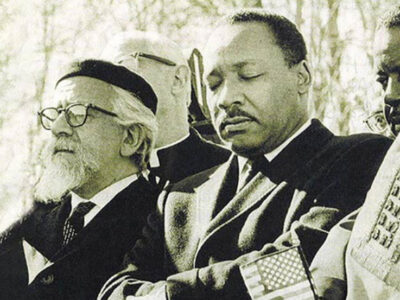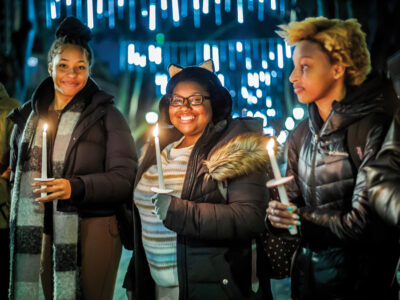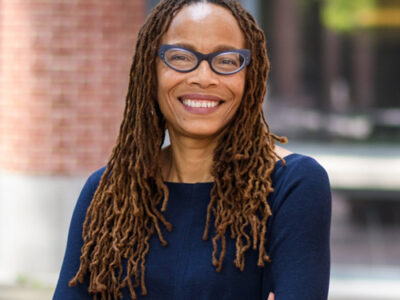
Two gifted orators, the Rev. Jesse L. Jackson and Penn faculty member Dr. Michael Eric Dyson, took the stage at Irvine Auditorium in January to talk—and sometimes argue —about Martin Luther King Jr. and his legacy.
Jackson, leader of Operation PUSH/National Rainbow Coalition, and Dyson, the Avalon Foundation Professor in the Humanities, faced off before a capacity crowd at the third annual Martin Luther King Lecture on Social Justice. The event was sponsored by the Center for Africana Studies and moderated by the center’s director, Dr. Tukufu Zuberi.
Spurred by cheers and cries of “Preach, brother!”, the two men, both ordained ministers, confronted one pointed question after another.
The most heated discourse emerged from their disagreement over the relative importance of analysis and action to the equal-rights struggle. Jackson stressed King’s dedication to action. “His legacy is mass action, it’s mass sacrifice; his impact was to change laws,” he said. “You can’t compensate for action with analysis.”
Dyson argued that, “Action is wedded to analysis, I think that’s what you did [in your work], I think that’s what Dr. King did.”
“You can’t wish a touchdown,”Jackson quipped. “You’ve got to run one.” The sparring session ended in good humor as Jackson and Dyson hugged, to applause from the packed house, made up of a diverse group of students, faculty, and Philadelphia residents.
Zuberi’s next question focused on King’s moral accountability for his plagiarism and extramarital affairs and asked what effect it would have on his legacy. Dyson, whose biography of King, I May Not Get There With You, confronts the icon’s moral indiscretions, snatched the discussion thread, and saved Jackson—who publicly admitted several years ago to fathering a child during an extramarital affair—from having to respond. Dyson defended King and, more subtly, Jackson, by sympathizing with their position, and asking people to consider moral shortcomings within the context of their lives and achievements. Jackson simply asked the audience to look at King’s amazing legacy as a whole.
President Rodin convened the symposium by stressing the inspirational power and importance of such events, noting that King himself had been touched by a lecture given about Gandhi at Penn in 1948.
Despite their occasional differences, Dyson and Jackson did agree on a need for class equality. Stretching past racial boundaries, both noted that “poor white people” are often duped into voting against their own best interests by “politicians who don’t have their best interests at heart.” They called for an end to political greed and identified “equal access to capital” as a critical step in the battle for equal rights.
They also railed against penal inequities, calling prisons warehouses. Dyson noted that black youths are “sold down the river” and incarcerated for crimes that “their white counterparts get slapped on the wrist for.” He then paused and said, “Black kid gets put in jail for DWI; white kid becomes president of the United States.”
—Patrick Brugh C’05




